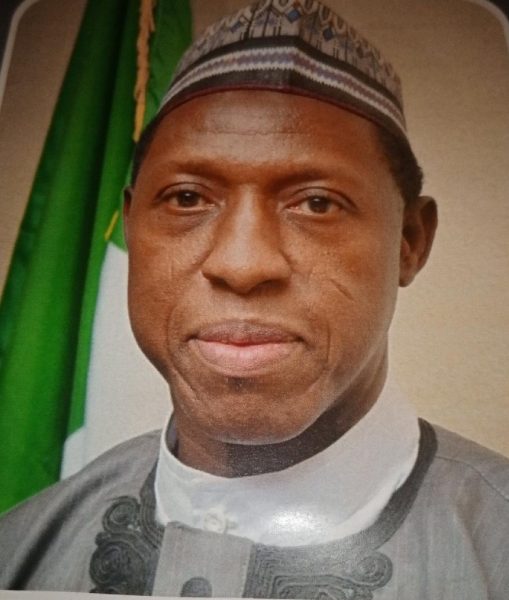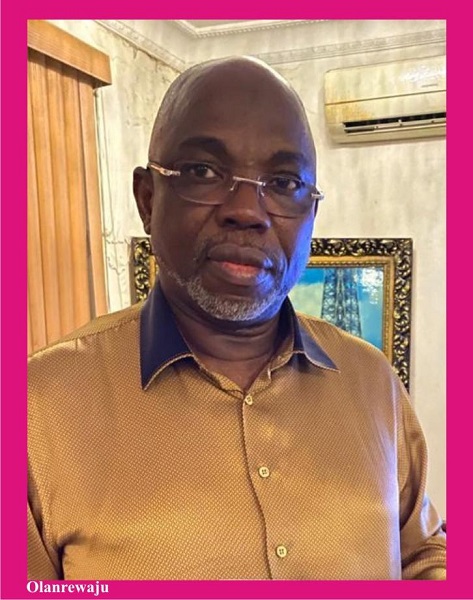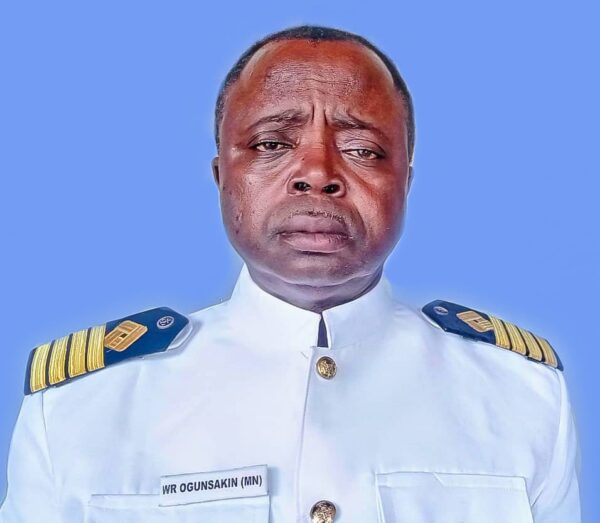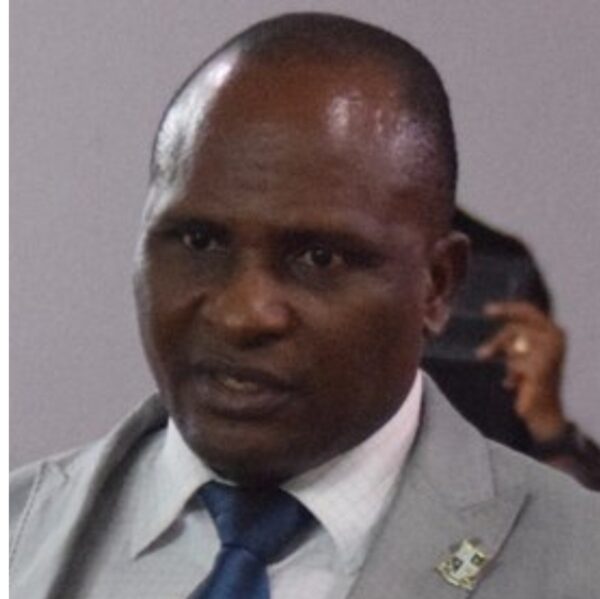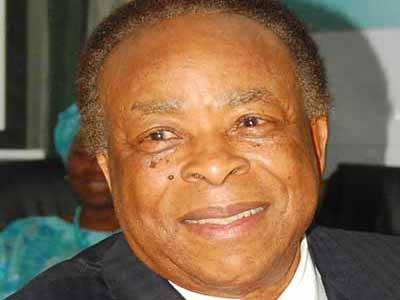CBN Aids Cargo Transfer To Neighbouring Ports- Aminu Umar, NISA President
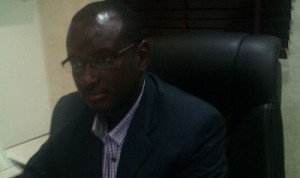
Alhaji Aminu Umar is the President of Nigerian Indigenous Ship-owners Association (NISA). In this exclusive interview with MMS Plus he explains the covert reasons behind the formulation of the Ship-owners Forum, he also gives the headway for the shipping industry, unraveling some detrimental economic policies and more.
Excerpts.
What is the essence of creating the Ship-owners Forum?
The major reason is to prevent excuses when we approach the government as a result of the different bodies of ship-owners. Most times the say because you are not together you cannot do this or that. So I think all the various associations in the industry particularly those that concern shipping decided to come together.
Majorly, there are two groups which are Ship Owners Association of Nigeria (SOAN) and Nigerian Indigenous Ship-owners Association (NISA) and other people who were not part of the association; hence we came up with what we call in the interim “the Ship-owners Forum”. The Ship-owners Forum is not taking over the functions of the other associations, but it is a platform for everyone within the group of ship-owners to come to share our thoughts to enable us see what we can get from this environment. That is what we have done in the last two or three weeks.
How about Captain Labinjo and his group which is also a faction of NISA?
It is not like we have left Labinjo out. SOAN is still SOAN, NISA remains NISA. People who were neither in SOAN or NISA are still there too. Labinjo is still in NISA, though he is a faction of NISA but that is NISA’s internal issue which has nothing to do with the ship-owners forum. NISA is going to resolve its problems with Labinjo’s faction. We have been talking between the executives and other group of ship-owners with Labinjo. I think at a certain level, we are going to find a solution to it, I don’t think it will last long.
I learnt that Japaul has been at the forefront in the peace move, but at the end is it going to be resolved by elections or would one party’s executives take over?
Mr. Jegede Paul is a very notable and respected ship-owner. There are few ship-owners listed in the Nigerian Stock Exchange and he is among them, yet he has been championing this. Together with the executives we have strived to ensure that this has nothing to do with our personal interest but the overall interest of the industry and we have met so many times. We have drawn up a course of action and Japaul is the arrowhead in it. Very soon I think all those issues will be resolved.
What happened to NIMAREX for this year?
NIMAREX 2016 will be held. NIMAREX is about showcasing the maritime industry of Nigeria to potential investors. It is also aimed at showcasing other international maritime organizations to Nigerian maritime investors. So it will happen, although it might not happen in March but will be held by the middle of the year or in the last quarter of this year. It will be held this year. I can assure you of that.
Has the Ship-owners Forum met the transport Minister, Rotimi Ameachi?
We are planning to meet him to discuss on the way forward for Nigerian ship-owners and the shipping industry. Actually, we had a conversation when he attended the African Maritime Summit and He has indicated that what is needed in Nigeria’s maritime domain is job creation, economic development and the shipping business is one of the crucial arms that can create jobs. We are going to make our submissions to him and we want to partner with the federal government to be able to create these jobs. Very soon, we will make a press release on that.
I’m aware you were making efforts to meet the president too. Is that still in the pipeline?
After meeting the Minister of Transport, we also intend making a submission to the President and the Vice President. It is in the pipeline but we wanted to come under one umbrella before we begin such moves.
This is the third month in 2016, what is the direction of your activities and how do you see the industry?
It depends on where you are looking at it from. For example, in the shipping sector there is a reduction in the level of activity as a result of the current situation of the nation’s economy. The upstream has also witnessed a drop in the volume of activities and this is as a result of the plummeting global oil prices. However, we believe things are going to be better, shipping is a cycle and there are lots of potentials for growth. The percentage of Nigerians participating in this industry is still very low. We believe that if we partner with the government and create the right environment and give support to Nigerians, more Nigerians will take up these investment opportunities in the sector.
The federal government will need to create supportive policies and implement some interventions in finance like we have in the Cabotage and its Cabotage Vessel Financing Fund (CVFF). With all these working, Nigerians will be able to acquire the assets that will generate employment, revenue for government and guarantee economic development.
Today, if you look at all sectors in the industry you will notice little or no Nigerians are participating in it. All the shipping that comes via dry cargo, no Nigerian is employed to do anything on these ships and these are potentials for income. For the wet cargo, we look at crude oil and the refined products. In the crude oil segment we are almost non-existent because we do not participate. We have a minimum of 70 vessels loading out of Nigeria every month. In two days an average of 5 vessels are loaded with crude oil in Nigeria and all the freights outlined on these vessels, the people working on the vessels as well as the tax paid; none comes to Nigeria. Nigeria is giving the foreigners everything. They employ their people, pay tax to their economy and the money goes to their banks while we are losing that entire income and economic development that we should have got.
For the refined products, it is the same scenario as no Nigerians participate in it. So, out of the over 700 vessels that come into this country per annum, nobody participates. The freight, the people working on the ship, the tax, etc is gone to other countries. Hence, we are feeding other countries more or less and we are crying about foreign exchange.
We can solve this by supportive policies from the government. Nigerian Ship-owners are saying “give us the support” so that we can do these activities and the monies will be in Nigerian banks and we pay tax to Nigeria and ensure that the people working on these ships are Nigerian. Let this foreign exchange come back to Nigeria.
There is the issue of CIF and FOB for shippers. Is it a government policy or what the market demands?
It is a policy adopted in the oil and gas sector by the Nigerian National Petroleum Corporation (NNPC) for only the crude loading and some parts of the export when it comes to exportation of refined products. We keep hearing people complain about the risk involved when you transfer cargo on CIF basis but I want to give an example; a branch of the Nigerian oil and gas sector is already doing the CIF. The Nigerian NLG has been delivering there cargo to their customers on the CIF basis and they are making gain on the freight and having control of the client that they deliver cargoes to.
Today, in the entire oil rich countries most of them like Angola, Saudi Arabia, etc are doing their delivery on CIF and there are no problems. So why should Nigeria be different? We are saying that if NNPC is not willing to invest in ships, why not give the opportunity to Nigerian ship-owners under the terms and conditions applicable to the foreign ship-owners who come into Nigeria to load? We aren’t asking for lower terms or lesser standards. Give us the same standards given to the foreign vessels that come to load.
Every vessel particularly in the oil and gas sector that loads any cargo has machinery insurance, the cargo is fully insured, the vessel is fully classed and the vessel is under the international Protection and Indemnity insurance (P&I). What it means is that if our vessels commit pollutions, we already covered with over a billion dollars pollution insurance. If the cargo gets contaminated, the P&I covers that also. When somebody says that he is afraid of risk, all I can say is that he doesn’t understand the shipping trade.
The price of oil is valued based on the bill of laden date. Today, if someone brings in cargo that the Nigerian National Petroleum Corporation (NNPC) buys and it arrives after 2 weeks, the cargo is priced based on the date of the bill of laden so what is the risk there? We are not saying that we are afraid of the risk, we are saying let’s sign the same agreement that is done internationally and give us the same standards that is obtainable worldwide. What we need is to be given the opportunity and support to develop the economy of the nation by generating foreign exchange.
Why is it that a good number of the people involved in cargo transfer especially with regards to petroleum products opt out of CIF to bring the cargo to Cotonou or Lome for ship-to-ship transfer?
The Central Bank of Nigeria (CBN) some years back made a policy change when they said that for any importer that wants to process a letter of credit to be able to pay his supplier, the bill of laden for that cargo must not read, “discharge port Lagos” or “load port Lagos”. If it reads “load port Lagos” it will be automatically disqualified from obtaining access to foreign exchange to pay the supplier. Based on that Nigerian importers decided to go to Cotonou and they have now moved to Lome. We have tried to meet the Central Bank to get them to change this policy. The ships that come into Lome are over 200 vessels in a month, if they had come to Nigeria they would have paid 3% levy to NIMASA which will be about $30, 000 to $40,000 per vessel. When you multiply by 200 vessels per month we are talking about $8,000,000 that NIMASA would have generated. Remember that when these ships come here, they will need water and Nigerians will supply and make money. The ships will have to do STS (ship –to-ship) transfer and lighterage operations but we are funding the people in Cotonou and Lome who are making money out of it as a result of our wrong policies. These vessels should have berthed in Lagos and we should have been generating money in several ways from Chandlers, Tourisms, Hotels and Hospitality, etc. We are developing other countries at the detriment of Nigeria. When we cry that we need employment, this is a sector that should have provided massive employment directly or indirectly. CBN should look at the policies and revoke it if possible to the interest of Nigeria. These are some of the things in our submission to the government through the Minister of Transport, Rotimi Amaechi. Now that we have a new Director General at NIMASA, we will also make a submission to him.
Lastly, what is your take on leadership in the maritime Sector?
I think that it has been unfortunate that the maritime sector has not enjoyed a good leadership over the years. It is also unfortunate that the people at the helm of affairs do not understand the opportunities and benefits that the nation stands to gain when they engage the stake holders. This is what leads to the high level of corruption and mismanagement in the system. We believe that the new government would appoint those with a lot of knowledge about shipping to be able to come up with good policies and ensure the implementation of the already existing ones to better the lot of Nigerians. I think that we need leadership that will create jobs for the maritime industry, create wealth and make revenue for the government.



